Traditional Poster
Preclinical MRI/MRS
ISMRM & ISMRT Annual Meeting & Exhibition • 10-15 May 2025 • Honolulu, Hawai'i

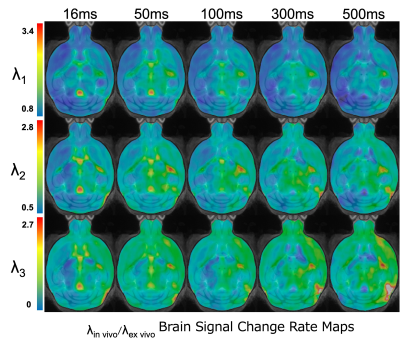 |
4914. Investigation
of water molecule metabolism in in vivo and ex vivo models using
time-dependent diffusion MRI with long diffusion times
A. Ishida, J. Hata, H. Oshiro, C. Kawai, H. Okano
Tokyo Metropolitan University Graduate School, Tokyo, Japan
Impact: The ability to evaluate signal changes using
noninvasive td-DWI with the same temperature settings for in
vivo and ex vivo models suggest a new tool for elucidating
the metabolic functions of water molecules.
|
|
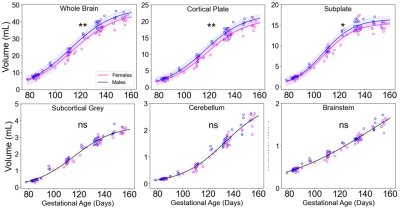 |
4915. In
Vivo Fetal Magnetic Resonance Imaging Reveals Gestational Sexual
Dimorphism in Rhesus Macaque Neurodevelopment
J. Karpf, J. Lo, V. Roberts, E. Sullivan, V. Cuzon Carlson,
C. Roberts, C. Kroenke
Oregon Health and Science University, Portland, United States
Impact: Our investigation provides the first evidence of
significant sexual dimorphism in fetal rhesus macaque
morphological neurodevelopment, highlighting the importance
of fetal sex in comparisons of normative development and
disease, and supplying additional evidence for radial neural
migration’s role in folding.
|
|
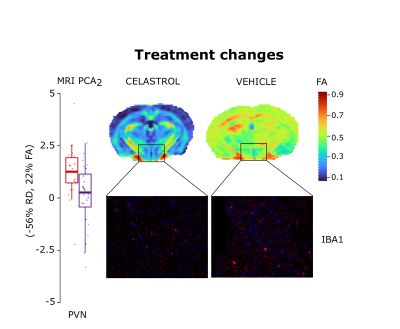 |
4916. Cerebral
magnetic resonance imaging and immunofluorescence reveal the
anti-inflammatory effects of an obesity treatment in mice
A. Ferreiro, M. Holgado, I. González-Villena, S.
Gonzalez-Soto, L. Fernández-Sevilla, A. Vicente, P.
Lopez-Larrubia, B. Lizarbe
Instituto de Investigaciones Biomédicas Sols-Morreale (CSIC-UAM), Madrid, Spain
Impact: The standardization of MRI techniques that could
reveal the brain changes underlying obesity development and
treatment could boost the development of improved
anti-obesity drugs and the understanding of its action
mechanisms.
|
|
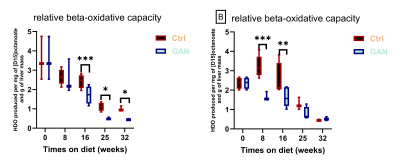 |
4917. Investigating
Hepatic Lipid Oxidation Using Deuterium MRI in an animal model
Subjected to Gubra-Amylin NASH (GAN) Diet
G. Sharma, V. Malut, G. Pierre, M. Chang, A. Rushin, D.
Graham, A. Badar, M. Madheswaran, M. McLeod, A. Giacalone,
M. Merritt
UNIVERSITY OF FLORIDA, GAINESVILLE, United States
Impact: This study demonstrates the utility of DMRI for
non-invasive detection of diet-induced hepatic metabolic
dysfunction, advancing early diagnostics for metabolic liver
diseases.
|
|
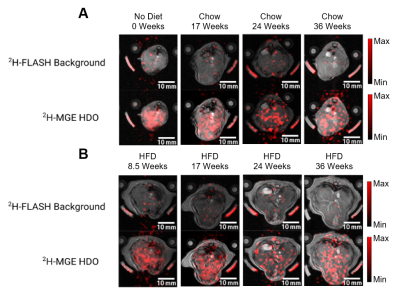 |
4918. In
vivo Imaging of Dysregulated β-Oxidation in a Diet-Induced Model
of MASLD with [D15]octanoate
M. Chang, M. McLeod, A. Rushin, M. Ragavan, R. Mahar, G.
Sharma, A. Badar, A. Giacalone, M. Glanz, V. Malut, D.
Graham, N. Sunny, J. Bankson, K. Cusi, M. Merritt
University of Florida, Gainesville, United States
Impact: Imaging HDO production from [D15]octanoate
oxidation can detect organ specific metabolism and may lead
to a novel clinical method for staging MASLD in a minimally
invasive manner. [D15]octanoate DMI needs to be tested in
humans to assess clinical capability.
|
|
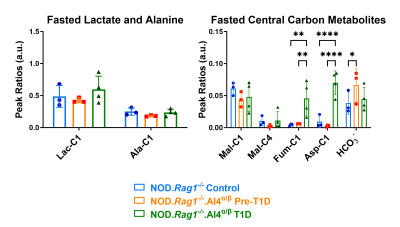 |
4919. Adaptations
in Central Carbon and Fatty Acid Metabolism in the Type 1
Diabetic Exocrine Pancreas by Magnetic Resonance
A. Rushin, G. Sharma, G. Pierre, D. Graham, C. Hardin, M.
Merritt
University of Florida, Gainesville, United States
Impact: The consequences of pyruvate cycling and
increased pyruvate carboxylation in the T1D exocrine
pancreas can now be investigated, and may be a target for
therapeutic intervention, whereas rates of DNL were
unchanged in the T1D pancreas.
|
|
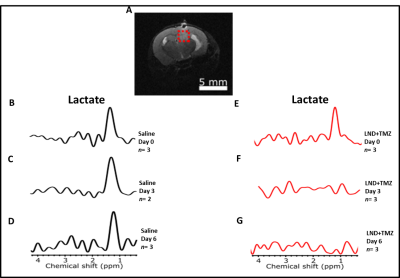 |
4920. 1H
MR spectroscopy to evaluate the effects of lonidamine and
temozolomide treatment in a mouse model of glioblastoma
T. H. H. Alrashidi, S. Bhaduri, E. N. Gash, M. Moothanchery,
C. Ball, S. Pickup, M. Maguire, H. Poptani
University of Liverpool, Liverpool, United Kingdom
Impact: This combination therapy might be a suitable
alternative for better treatment of glioblastomas.
|
|
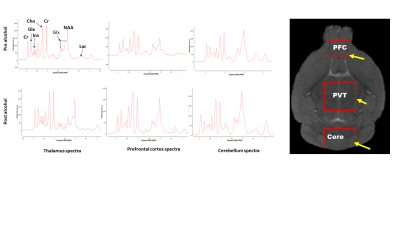 |
4921. MRS
measurement of Chronic intermittent ethanol exposure effects on
Metabolites alterations during withdrawal in mouse brain.
A. Bosomtwi, R. Ara, H. Kim, A. Bennett, D. Thomas, S. Kang
Augusta University, Augusta, United States
Impact: In vivo 1H magnetic resonance spectroscopy
techniques were applied to reveal biochemical changes in the
mouse brain caused by prolonged ethanol consumption.
|
|
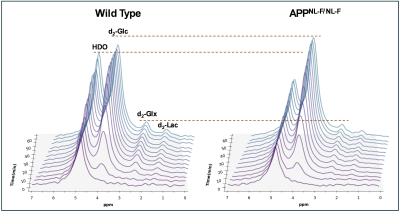 |
4922. Investigating
the Relation Between NAD+ Biosynthesis and Glucose Metabolism in
a Mouse Model of Alzheimer's Disease using In Vivo 2H MRS
N. D. Soni, A. Swain, P. Jacobs, S. Khokhar, H. Juul, R. P.
R. Nanga, R. Reddy, M. Haris
University of Pennsylvania, Philadelphia, United States
Impact: This preliminary study supports the loss of
NAMPT levels as a possible underlying cause of compromised
neuroenergetics and metabolism in AD and potential of NAMPT
activators in alleviating the symptoms of the disease by
upregulating glucose metabolism.
|
|
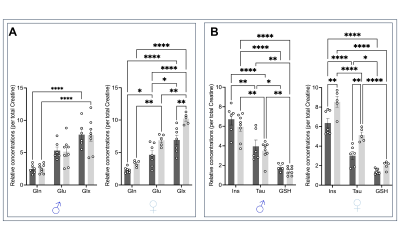 |
4923. MR
Spectroscopy Detects Sex-Specific Early Brainstem Glial
Activation in a Mouse Model of Alzheimer’s Disease
S. Kushwaha, P. Bhat, R. Roy Choudhury, S. S. Kumaran, S.
Karunakaran
Centre for Brain Research, Indian Institute of Science, Bangalore, India
Impact: Including brainstem MRS results in routine
clinical evaluations could allow clinicians to offer
tailored lifestyle advice or enroll individuals in
prevention trials focused on maintaining brain health.
|
|
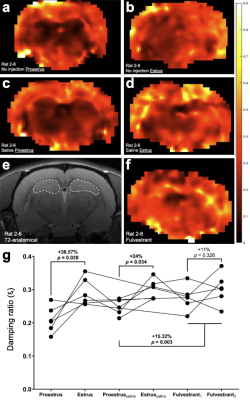 |
4924. Hippocampal
viscosity is increased when estrogen is low in female rats
scanned with MR elastography
K. Milbocker, L. Williams, S. Vander Wiele, E. Zarate, H.
Schwarb, A. Klintsova, C. Johnson
University of Delaware, Newark, United States
Impact: We reveal a previously unknown relationship
between estrogen and brain tissue mechanics, demonstrating
that hormonal changes directly influence hippocampal
viscoelasticity through astrocytic mechanisms, providing new
therapeutic targets for maintaining cognitive health during
menopause and aging.
|
|
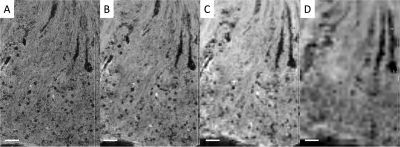 |
4925. Counting
glomeruli in human kidney specimens without contrast agents
using ex vivo MRI at 16.4 T
N. Kurniawan, A. Amar, L. Cullen-McEwen, A. Kassianos, H.
Healy, J. Bertram, D. Reutens
The University of Queensland, St. Lucia, Australia
Impact: For the first time, we showed that MRI without
contrast agents can be used to visualise glomeruli in human
kidney specimens. Our approach required minimal handling
with the tissues remaining intact post MRI, allowing easy
transportation and further experiments.
|
|
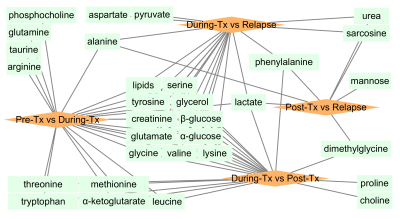 |
4926. Serum
metabolic changes in acute myelogenous leukemia during initial
chemotherapy and their prognostic implications
R. Hu, D. Li, X. Jia, Y. Zhang, C. Chen, S. Deng, Y. Duan,
H. Yi, Y. Cao, J. Zhang, P. Guo, Y. Chen
Fujian Medical University, Fuzhou, China
Impact: This study reveals serum metabolic changes in
new AML patients during chemotherapy. It identifies distinct
metabolic profiles, paving the way for early biomarkers of
drug resistance and prognosis. Understanding these
mechanisms can enhance treatment strategies and improve
patient prognosis.
|
|
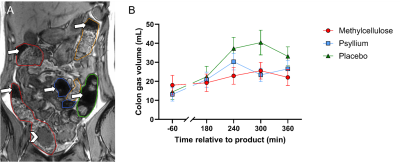 |
4927. Ingesting
methylcellulose fibre gels are as effective as psyllium in
reducing colonic fermentation of inulin – a first step to IBS
symptom relief
N. Dellschaft, A. Alhasani, J. Reid, A. Spicer, C. Hoad, L.
Marciani, P. Gowland, R. Spiller
University of Nottingham, Nottingham, United Kingdom
Impact: Methylcellulose reduces colonic gas produced by
dietary FODMAPs in healthy volunteers. If replicated in
patients with IBS-C, then methylcellulose could form a
low-cost dietary additive to enable people with IBS-C to eat
a health-promoting diet with less abdominal pain.
|
|
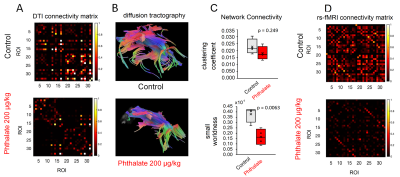 |
4928. Perinatal
exposure to phthalate mixtures alters structural and functional
networks in mouse brain
J. Benson, S. Majumdar, B. Sutton, H. Gritton, J. Goense
University of Illinois Urbana-Champaign, Urbana, United States
Impact: Perinatal phthalate exposure contributes to
atypical limbic development visible in fMRI and DTI
connectivity. This correlates with autism-relevant social
behavior changes which is relevant to understanding how
phthalates could contribute to the rise in autism over the
last two decades.
|
|
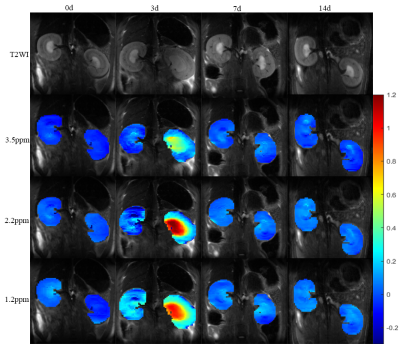 |
4929. Dynamic
assessment of renal function by using endogenous CEST MRI in a
reversible unilateral ureter obstruction rat model
Y. Wu, H. Sun, J. Wang, X. Zhang, Y. Yuan, Y. He, Q. Li, J.
Zhang, F. Zhao
Tianjin Medical University General Hospital, Tianjin, China
Impact: Endogenous CEST MRI could serve as a potential
biomaker to evaluate the early renal fibrosis process
induced by reversible unilateral ureter obstruction (RUUO).
Different patterns of CEST effects in multiple protons
possibly reflect various potential metabolic mechanisms.
|
|
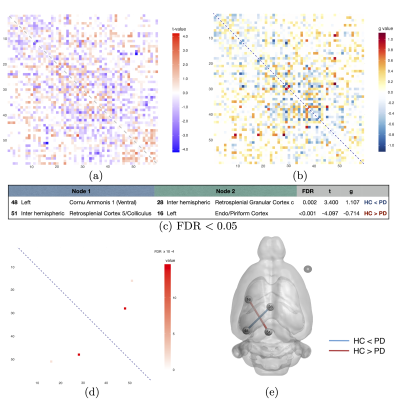 |
4930. Functional
and structural connectivity changes in a 6-OHDA Parkinsonian
model
S. Zhu, M. Bergamino, A. Fuentes, I. Sandoval, D. Marmion,
C. Bishop, F. Manfredsson, A. Stokes
Barrow Neurological Institute, Phoenix, United States
Impact: These findings underscore the value of
integrating FC and SC analysis with FW-DTI in the 6-OHDA
model, offering insights into PD pathology and potential
biomarkers for neurodegenerative progression.
|
|
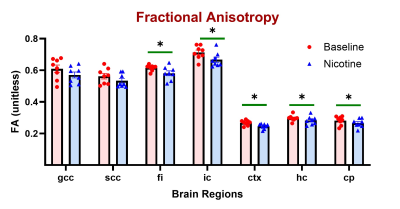 |
4931. CEST
and DT-MRI detected early brain changes due to nicotine use in
mice
A. Sajja, J. Mathiyazhagan, M. Summerlin, A. Bade, Y. Liu
University of Nebraska Medical Center, Omaha, United States
Impact: The outcome of this study would provide in
vivo image-based biomarkers to monitor brain alterations and
improve our understanding of the effect of nicotine in
various brain regions and therapeutic responses.
|
|
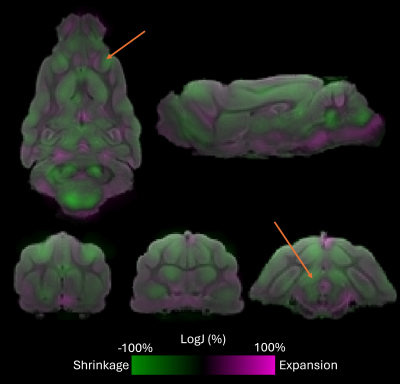 |
4932. Evaluating
Age-Related Brain Changes in the Female Ferret
L. Dieckhaus, L. Falbinan, J. Mendoza, A. Cruz, R. Carlson,
E. Orozco, E. Hutchinson
University of Arizona, Tucson, United States
Impact: Voxel-wise morphology in the ferret allows us to
track age-related changes in a longitudinal fashion.
|
|
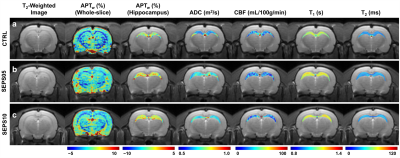 |
4933. Molecular
MR Imaging of Neuroinflammation in Sepsis-Associated
Encephalopathy: An Animal Study Using Amide Proton Transfer CEST
D-W Lee, H. Ryu, C-W Woo, H. Heo, D-C Woo, D. Lee
University of Ulsan College of Medicine, Seoul, Korea, Republic of
Impact: This study highlights APTw imaging's potential
to transform early SAE diagnosis, aiding clinicians in
timely intervention. It prompts further research on
molecular imaging biomarkers for inflammation and opens new
avenues for developing targeted therapies for sepsis-induced
brain injury.
|
The International Society for Magnetic Resonance in Medicine is accredited by the Accreditation Council for Continuing Medical Education to provide continuing medical education for physicians.